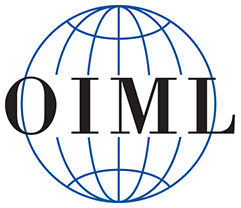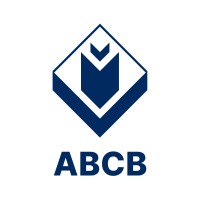Conformance testing — an element of conformity assessment, and also known as compliance testing, or type testing — is testing or other activities that determine whether a process, product, or service complies with the requirements of a specification, technical standard, contract, or regulation. Testing is often either logical testing or physical testing. The test procedures may involve other criteria from mathematical testing or chemical testing. Beyond simple conformance, other requirements for efficiency, interoperability or compliance may apply. Conformance testing may be undertaken by the producer of the product or service being assessed, by a user, or by an accredited independent organization, which can sometimes be the author of the standard being used. When testing is accompanied by certification, the products or services may then be advertised as being certified in compliance with the referred technical standard. Manufacturers and suppliers of products and services rely on such certification including listing on the certification body's website, to assure quality to the end user and that competing suppliers are on the same level.
The ISO 9000 family is a set of five quality management systems (QMS) standards that help organizations ensure they meet customer and other stakeholder needs within statutory and regulatory requirements related to a product or service. ISO 9000 deals with the fundamentals of QMS, including the seven quality management principles that underlie the family of standards. ISO 9001 deals with the requirements that organizations wishing to meet the standard must fulfill. ISO 9002 is a model for quality assurance in production and installation. ISO 9003 for quality assurance in final inspection and test. ISO 9004 gives guidance on achieving sustained organizational success.

A certification mark on a commercial product indicates the existence of an accepted product standard or regulation and a claim that the manufacturer has verified compliance with those standards or regulations. The specific specification, test methods, and frequency of testing are published by the standards organization. Certification listing does not necessarily guarantee fitness-for-use. Validation testing, proper usage, and field testing are often needed.

Organic certification is a certification process for producers of organic food and other organic agricultural products, in the European Union more commonly known as ecological or biological products. In general, any business directly involved in food production can be certified, including seed suppliers, farmers, food processors, retailers and restaurants. A lesser known counterpart is certification for organic textiles that includes certification of textile products made from organically grown fibres.
Quality Assurance International (QAI) is a U.S.-based international organic certification company that is authorized by the United States Department of Agriculture (USDA) as "a USDA-accredited certifying agent that operates globally to certify organic operations to National Organic Program standards." It is a for-profit corporation, established in 1989, and headquartered in San Diego, California. It is one of the world's largest certifiers, operating in the United States, Canada, Latin America, European Union, and Japan. It is owned by public health and environmental organization NSF International.

The International Organization of Legal Metrology, is an intergovernmental organisation that was created in 1955 to promote the global harmonisation of the legal metrology procedures that underpin and facilitate international trade.
Accreditation is the independent, third-party evaluation of a conformity assessment body against recognised standards, conveying formal demonstration of its impartiality and competence to carry out specific conformity assessment tasks.

Certification is part of Testing, inspection and certification and the provision by an independent body of written assurance that the product, service or system in question meets specific requirements. It is the formal attestation or confirmation of certain characteristics of an object, person, or organization. This confirmation is often, but not always, provided by some form of external review, education, assessment, or audit. Accreditation is a specific organization's process of certification. According to the U.S. National Council on Measurement in Education, a certification test is a credentialing test used to determine whether individuals are knowledgeable enough in a given occupational area to be labeled "competent to practice" in that area.

Product certification or product qualification is the process of certifying that a certain product has passed performance tests and quality assurance tests, and meets qualification criteria stipulated in contracts, regulations, or specifications.
ISO/IEC 17025General requirements for the competence of testing and calibration laboratories is the main ISO/IEC standard used by testing and calibration laboratories. In most countries, ISO/IEC 17025 is the standard for which most labs must hold accreditation in order to be deemed technically competent. In many cases, suppliers and regulatory authorities will not accept test or calibration results from a lab that is not accredited. Originally known as ISO/IEC Guide 25, ISO/IEC 17025 was initially issued by ISO/IEC in 1999. There are many commonalities with the ISO 9000 standard, but ISO/IEC 17025 is more specific in requirements for competence and applies directly to those organizations that produce testing and calibration results and is based on somewhat more technical principles. Laboratories use ISO/IEC 17025 to implement a quality system aimed at improving their ability to consistently produce valid results. It is also the basis for accreditation from an accreditation body.

The British Standards Institution (BSI) is the national standards body of the United Kingdom. BSI produces technical standards on a wide range of products and services and also supplies certification and standards-related services to businesses.
The South African National Accreditation System (SANAS) is the official accreditation body for South Africa. Founded in 1996, SANAS is headquartered in Pretoria, South Africa. SANAS accreditation certificates are a formal recognition by the Government of South Africa that an organisation is competent to perform specific tasks.
The International Accreditation Forum, Inc. (IAF) is the world association of Conformity Assessment Accreditation bodies and other bodies interested in conformity assessment in the fields of management systems, products, services, personnel and other similar programs of conformity assessment. Its primary function is to develop a single worldwide program of conformity assessment which reduces risk for business and its customers by assuring them that accredited certificates may be relied upon.
The International Accreditation Forum (IAF) Multilateral Recognition Arrangement (MLA) is an agreement for the mutual recognition of accredited certification between IAF Accreditation Body (AB) Member signatories. This agreement allows for the acceptance of accredited certification in many markets based on one accreditation. The worldwide recognition of certificates granted by IAF MLA signatories and their accredited bodies removes technical barriers to trade, reduces costs and adds value to business and customers.

The Bureau of Indian Standards (BIS) is the National Standards Body of India under Department of Consumer affairs, Ministry of Consumer Affairs, Food & Public Distribution, Government of India. It is established by the Bureau of Indian Standards Act, 2016 which came into effect on 12 October 2017. The Minister in charge of the Ministry or Department having administrative control of the BIS is the ex-officio President of the BIS. BIS has 500 plus scientific officers working as Certification Officers, Member secretaries of technical committees and lab OIC's.
Environmental certification is a form of environmental regulation and development where a company can voluntarily choose to comply with predefined processes or objectives set forth by the certification service. Most certification services have a logo which can be applied to products certified under their standards. This is seen as a form of corporate social responsibility allowing companies to address their obligation to minimise the harmful impacts to the environment by voluntarily following a set of externally set and measured objectives.
The European Organization for Quality (EOQ) is an autonomous, non-profit making association under Belgian law, having its legal office in Brussels. EOQ is the European interdisciplinary organization striving for effective improvement in the sphere of quality management as the coordinating body and catalyst of its National Representative Organizations (NR's). EOQ's Network comprises National Representative, Associated, Affiliated members’ and partners’ organizations from 40 countries, reaching up to 70,000 members and 500,000 companies linked to its members.
ISO/IEC 27001 is an international standard to manage information security. The standard was originally published jointly by the International Organization for Standardization (ISO) and the International Electrotechnical Commission (IEC) in 2005, revised in 2013, and again most recently in 2022. There are also numerous recognized national variants of the standard. It details requirements for establishing, implementing, maintaining and continually improving an information security management system (ISMS) – the aim of which is to help organizations make the information assets they hold more secure. Organizations that meet the standard's requirements can choose to be certified by an accredited certification body following successful completion of an audit. The effectiveness of the ISO/IEC 27001 certification process and the overall standard has been addressed in a large-scale study conducted in 2020.

The International Council of Management Consulting Institutes (ICMCI) has since 1987 been the professional body worldwide for management consultants. ICMCI since 2013 is called CMC-Global.

The Australian Building Codes Board (ABCB) is a body that writes Australia's standardized building requirements, including the National Construction Code (NCC), WaterMark, and CodeMark. The ABCB is part of a joint endeavour by the Commonwealth, state and territory governments, and the country's plumbing and building industries.









